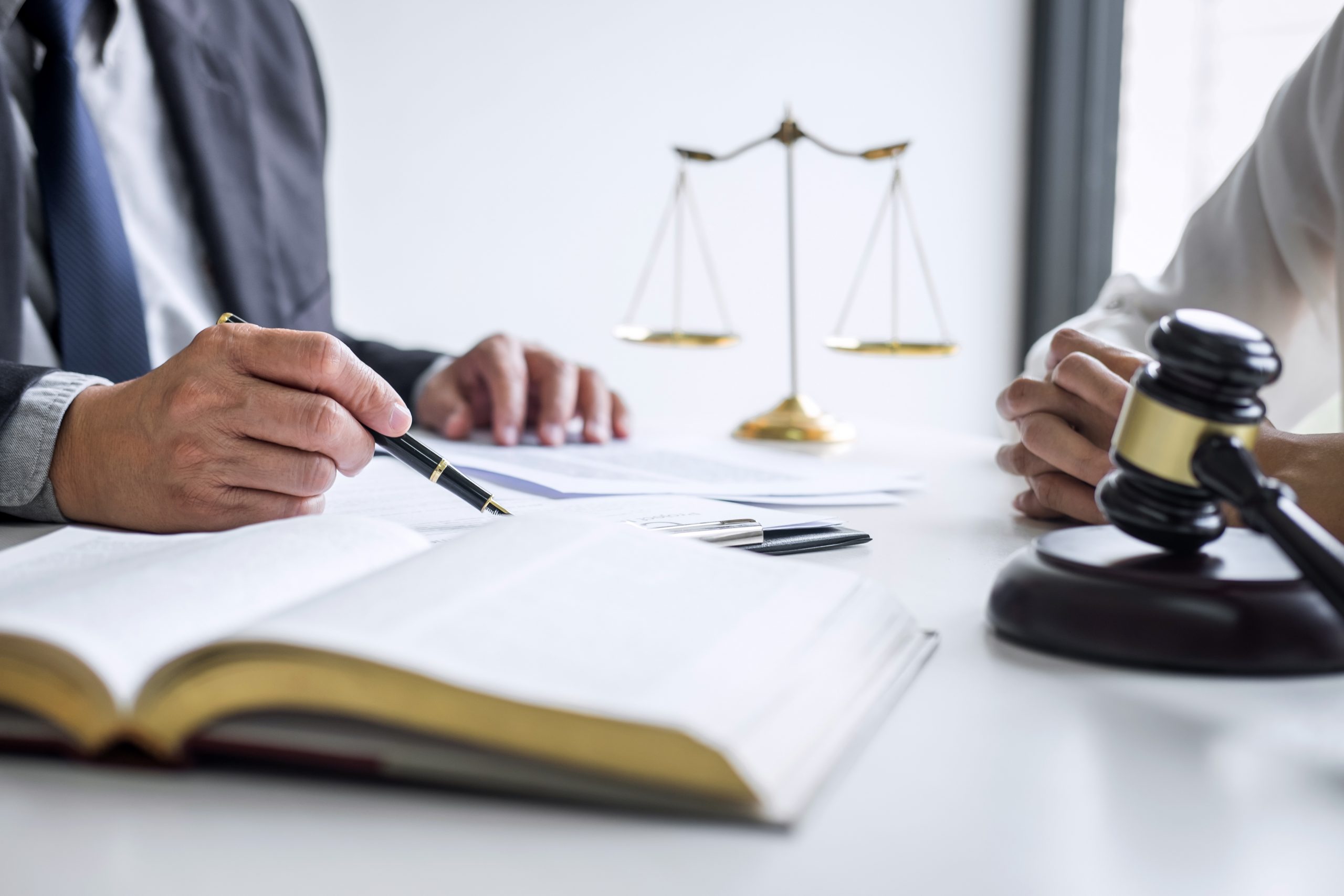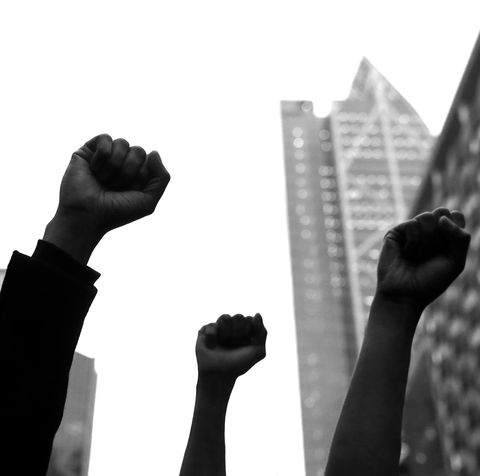
Interview with Ruth Reid, Barrister at Three Temple Gardens Chambers and founder of Cake and Counsel
October 19, 2020
Freelance Solicitors – The ‘Wild West’?
October 26, 2020Article by Natalya McPartland
In her book, Who Believes in Human Rights? Reflections on the European Convention, Professor Marie-Benedictine Dembour proposed four schools of thought, each with a different view on the foundations of human rights. Natural scholars conceive human rights as given; deliberative scholars see them as agreed upon. Protest scholars view human rights as fought for and discourse scholars view them as talked about. The protest school of human rights is arguably the most relevant today, as will be demonstrated by examples of human rights created from protests, like those ongoing currently for the Black Lives Matter movement.
The protest school of human rights is concerned primarily with redressing injustice. It argues that human rights are claims and aspirations made by or on behalf of the unprivileged and oppressed. Protest scholars do not accept that all effective human rights protections have been realised. Within the protest school, human rights are viewed as calls to respect the rights of others, not entitlement of individuals.
Through in-depth discussion, we could find human rights arising as discussed by all four schools of thought on the matter. However, the protest theory feels most apt. For example, the Storming of the Bastille led to the King and Queen of France being overthrown and guillotined, resolution in the abolition of the Monarchy and the Declaration of Human and Citizen Rights. This had widespread consequences, redefining borders and spreading a revolutionary spirit across Europe. This single protest can be credited with leading to improved living and working conditions and codified rights in several European states. The Storming of the Bastille alone can therefore illuminate the influence of the protest school of thought, by demonstrating the effectiveness of protest as a route to gaining rights.
The Salt Protest in 1930 saw Gandhi travel 23 days to collect salt against British rules. This led to over 60,000 arrests as followers mimicked him and were similarly detained. This weakened the British monopoly over salt, in turn undermining British authority over India. Eventually, through more protests and a gradual weakening of power, India gained independence in 1947.
The Stonewall Riots are an example of protests bringing change for a marginalised community. These were a series of violent demonstrations by the LGBT community in 1969. They were campaigning against the repeated raids on gay bars by NYPD, attempting to promote tolerance of spaces safe to allow gay people to be open about their sexuality without fearing reproach or arrest. Though it didn’t stop raids immediately, it is widely regarded as the beginning of the Gay Liberation movement. It also led to the first Pride march, a year later, after which the speed of progress increased. In the following decade, federal exclusions on gay and lesbian people in the USA were lifted, and the medical profession reversed its long-held belief that gay people were in need of psychiatric treatment. It’s argued that these strides would not have been made – or made as quickly – without the Stonewall riots.
The March on Washington in August 1963, in which Martin Luther King gave his landmark “I have a dream” speech, is thought to have turned the tides in the Civil Rights Movement. This in turn led to the end of segregation and the beginning of equal rights for black people in the USA. The Civil Rights Movement in general is an example of rights hard won by a marginalised community, further reinforcing Dembour’s protest theory. This is credited with delivering enough pressure to make President John F. Kennedy draw up firm civil rights legislation in the form of the Civil Rights Act in 1964 and the Voting Rights Act in 1965, making all forms of segregation illegal and allowing black people the vote.
The Black Lives Matter protests highlight that the protest school of rights is still relevant today; the rights advocated for during the Civil Rights Movement are still yet to be fully realised, although we are much closer. The protest school of rights continues to be – as it always has been – a very important channel to hear the voices of those who have been silenced. Marginalised groups have always had to fight for equal rights, and the earlier examples have shown that the rights they have today may not exist if not for them being able to protest. The BLM protests are so important, and the protest theory itself is so prevalent because for marginalised groups, history has indicated that the only way that they can gain the rights they deserve is to campaign and protest.
The awareness raised during the Black Lives Matter protests, and the changes as a result, demonstrate the importance of protests as a way to express discontent and initiate change which is aided by social media giving a platform to those campaigning and allowing the faster spread of news. Videos of brutality and live updates on protests were readily available, making them more accessible and more important than ever. The awareness raised during these protests helped to affect actual change – George Floyd’s killers were reprimanded; Minneapolis have pledged to dismantle their police force; organisations, companies and even governments across the world have become to enact change. The Black Lives Matter movement is thought to be the largest mass political movement in US history, which in itself shows that attitudes are changing, that protests can change perspectives.
These protests have also brought up broader, more radical questions – for example, whether our police need to be defunded. Many believe that these steps ‘go too far’ and that in order to gain popular support, the cause must be scaled back and made ‘more realistic.’ However, it must be remembered that at one point, Martin Luther King’s calls for the end of segregation were considered ‘too far’ by a large proportion of the population. People were so outraged at the end of segregation that the Little Rock Nine had to have federal troops to escort them to class. Such a stance would scarcely be supported now, due to the foundations laid by the Civil Rights Movement and changing attitudes since. The hope is that the current protests can create a world in the future where today’s injustices are unthinkable.
Even with the Black Lives Matter protests, more needs to be done. Breonna Taylor’s case was reopened, but the result was demoralising to most. Our education system is still sorely lacking where racial issues and true accounts of our history are concerned. Black people are still disproportionately imprisoned, more likely to suffer from poor mental health and more likely to be killed in police custody. The Lammy Report indicates that despite what many would like to believe, we have a long way to go in the UK, too. Black people account for 3% of the UK population, but 12% of our prisoners. Change needs to be made, and history indicates that protest is the best way to do this.
Whether this should be supported is debatable. When protests are brought up, many automatically jump to the assumption of violence, and in many cases this is true. A lot of people argue that sometimes, violence is necessary for change. The French Revolution is indication of this, but few would agree this is necessary or desirable today. However, out of more that 7,750 demonstrations, 93% of protests associated with the Black Lives Matter movement in the US have been peaceful, in accordance with Time Magazine. It must also be noted that their definition of ‘violent’ ranges from ‘fighting back against police’ to toppling statues and vandalism, so includes incidents in which nobody was physically harmed. Therefore, in the case of this particular movement, it could comfortably be argued that few people are being hurt, and consequentially there is little reason for not supporting the protests. It has the potential to save many more than it harms. However, in all instances, there is an argument to be made about the importance of protest as an outlet for grief and change; though we would never want to advocate for violence, sometimes it is the only way to initiate change, and make people listen. For example, look at how the actions of the Suffragettes, despite often being aggressive and violent (attacking politicians of golf courses and bombing their houses), are regarded as necessary today.
In an ideal world, we would reach a point where Dembour’s protest theory becomes redundant, in which we are so equal that no rights are left to be fought for. Looking at the developments over the past few decades, it is conceivable that we may rectify enough inequalities that there are no more rights to be advocated for. However, looking at all of the injustices in today’s society, especially as new ones are uncovered, this feels like an unrealistic Utopian concept, only reinforcing Dembour’s view that the protest theory will remain relevant. There will always be more work to be done.
This, more than anything, seems to make the protest theory more important than the others. There are a multitude of abuses to be uncovered, countless people to protect and regimes to protest against. We are working through, methodically. Protests have accomplished everything from felling the Berlin Wall to recalling a rigged election and restoring democracy in Ukraine. Dembour’s theory that human rights are won through effort and fighting is a little exhausting, but effective. We can continue using it to bring attention, awareness and change to causes that matter.





